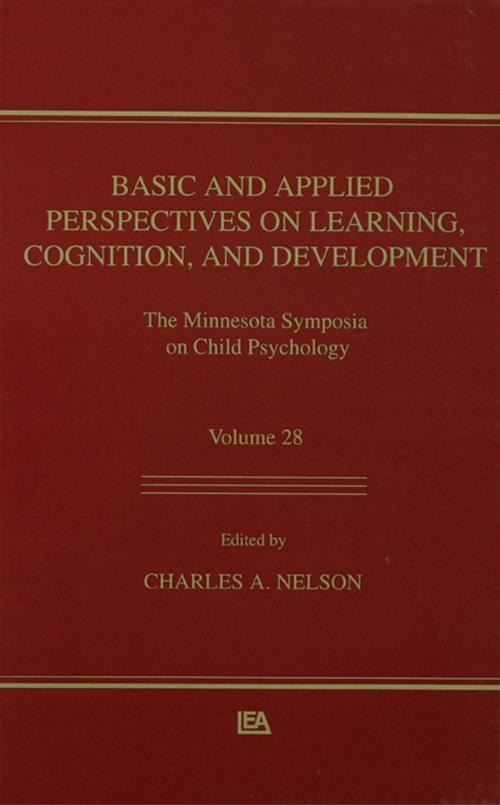Basic and Applied Perspectives on Learning, Cognition, and Development
The Minnesota Symposia on Child Psychology, Volume 28
Nonfiction, Health & Well Being, Psychology, Developmental Psychology| Author: | ISBN: | 9781134792337 | |
| Publisher: | Taylor and Francis | Publication: | May 13, 2013 |
| Imprint: | Psychology Press | Language: | English |
| Author: | |
| ISBN: | 9781134792337 |
| Publisher: | Taylor and Francis |
| Publication: | May 13, 2013 |
| Imprint: | Psychology Press |
| Language: | English |
Although current views of cognitive development owe a great deal to Jean Piaget, this field has undergone profound change in the years since Piaget's death. This can be witnessed both in the influence connectionist and dynamical system models have exerted on theories of cognition and language, and in how basic work in cognitive development has begun to influence those who work in applied (e.g., educational) settings. This volume brings together an eclectic group of distinguished experts who collectively represent the full spectrum of basic to applied aspects of cognitive development.
This book begins with chapters on cognition and language that represent the current Zeitgeist in cognitive science approaches to cognitive development broadly defined. Following a brief commentary on this work, the next section turns to more applied issues. Although the focus here is on arithmetic learning, the research programs described have profound implications for virtually all aspects of education and learning. The last chapter views cognitive development from the perspective of ethology and evolutionary biology, and in so doing provides a theoretical perspective that is novel and in some ways, prescient: specifically, how can our views of cognition incorporate recent work in biology?
Although current views of cognitive development owe a great deal to Jean Piaget, this field has undergone profound change in the years since Piaget's death. This can be witnessed both in the influence connectionist and dynamical system models have exerted on theories of cognition and language, and in how basic work in cognitive development has begun to influence those who work in applied (e.g., educational) settings. This volume brings together an eclectic group of distinguished experts who collectively represent the full spectrum of basic to applied aspects of cognitive development.
This book begins with chapters on cognition and language that represent the current Zeitgeist in cognitive science approaches to cognitive development broadly defined. Following a brief commentary on this work, the next section turns to more applied issues. Although the focus here is on arithmetic learning, the research programs described have profound implications for virtually all aspects of education and learning. The last chapter views cognitive development from the perspective of ethology and evolutionary biology, and in so doing provides a theoretical perspective that is novel and in some ways, prescient: specifically, how can our views of cognition incorporate recent work in biology?















